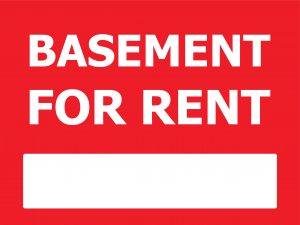 If you have a Minneapolis or St Paul duplex with a unit in the attic or the basement, it should add value to your property, right?
If you have a Minneapolis or St Paul duplex with a unit in the attic or the basement, it should add value to your property, right?
Unfortunately, unless the city knows all about it and has given their blessing, the answer is no.
The reason is banks typically won’t count the rent from a non-conforming unit to help a buyer qualify for a mortgage. The reason? They don’t consider it “legal income.”
Here’s why:
1. Zoning & Code Compliance
-
A non-conforming unit usually means the space isn’t legally recognized as a dwelling under local zoning or building codes (for example, a basement apartment without proper egress, ceiling height or permits).
-
Because the city/county doesn’t officially recognize it, the city could come in and shut it down.
2. Risk to Lender
-
If the city orders the unit to be vacated, or if the owner is fined or forced to remove the kitchen, the rental income disappears overnight.
-
Since lenders assess risk based on predictable, legal cash flow, they exclude income that could be shut down by code enforcement.
3. Appraisal & Underwriting Guidelines
-
Of course, the information above means appraisers can only include income from units that are legal and conforming.
-
Underwriters follow agency rules (Fannie Mae, Freddie Mac, FHA, etc.), which require income to be documented, legal, and likely to continue. Non-conforming units don’t meet that standard.
4. Insurance & Liability Issues
-
Non-conforming rentals sometimes aren’t covered under standard insurance policies. That adds risk for both the borrower and the lender, further disqualifying the income.
In other words, a third unit won’t automatically add value to your property. Where it might help, however, is if a buyer perceives value in it but does not need to count any rental income to qualify for a mortgage.
That makes it a strong maybe, but nothing a seller or buyer can take to the bank with any level of certainty.
If the property is in Minneapolis, can’t it be counted as an Accessory Dwelling Unit (ADU)? Most property owners have found the building code restrictions nearly insurmountable and simply opted to either use the finished space for other purposes or pursue getting it classified as an internal ADU.
Again, however, could is not a guarantee.
That’s the funny thing about banks. They seem to like certainty about getting their money back.

